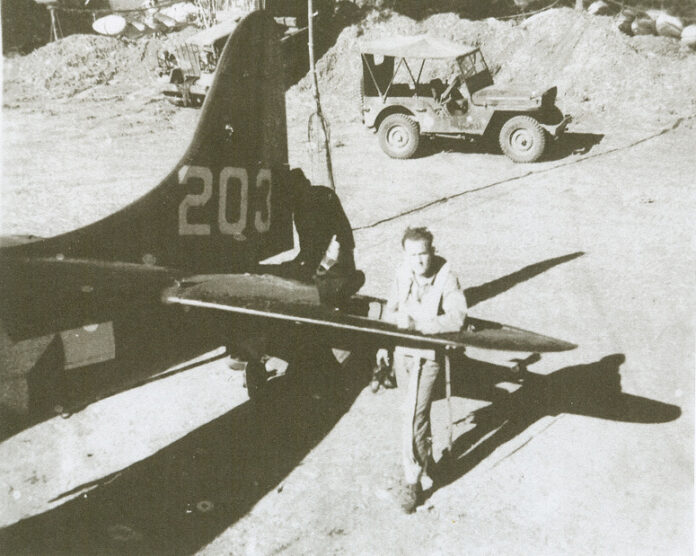
There is a Wall of Fame at Virginia Tech which recognizes Virginia Tech Alumni who have distinguished themselves through contributions of service in the fields of aviation or aerospace. The Wall of Fame was dedicated in 1998 and one inductee is selected each year. This year on September 15th Major Frank H. McFadden, USMCR (Ret) of Roanoke will be the next veteran to be so honored.
“Mac” as his friends call him is a remarkable gentleman of many achievements. He is a true citizen soldier, having served in the United States Marine Corps during WWII, flying 113 combat missions as a Dive Bomber Pilot who participated in 11 campaigns.
McFadden won 4 Distinguished Flying Crosses, a Purple Heart Medal, 12 Air Medals, the Asiatic Pacific Campaign Medal with 11 Battle Stars, the Philippine Liberation Medal, and many other decorations. McFadden was wounded by anti-aircraft fire while dive bombing Japanese artillery positions near the City of Manila in the Philippines, and with a severely damaged airplane, he was able to save his rear seat gunner and the airplane.

After the war, he returned to Virginia Tech, completed his education in Mechanical Engineering and was employed by the Norfolk and Western Railway until the Korean War when he was recalled to active duty. He then returned to flying F4U’S, and trained Marine Fighter Pilots for duty in Korea.
With the arrival of helicopters in the Marine Corps, Major McFadden qualified as a Helicopter Pilot and was assigned to a project that developed the first standard operating procedure for the use of helicopters in combat. This was the beginning of the transition of moving troops from ships to shore using helicopters in lieu of landing craft and McFadden played a key role in developing some of the basic techniques and procedures still used today.
With the end of the Korean War, Major McFadden returned to the Marine Ready Reserve, and the Norfolk and Western Railway, retiring in 1981 as Planning Manager for the Motive Power and Equipment Department.


